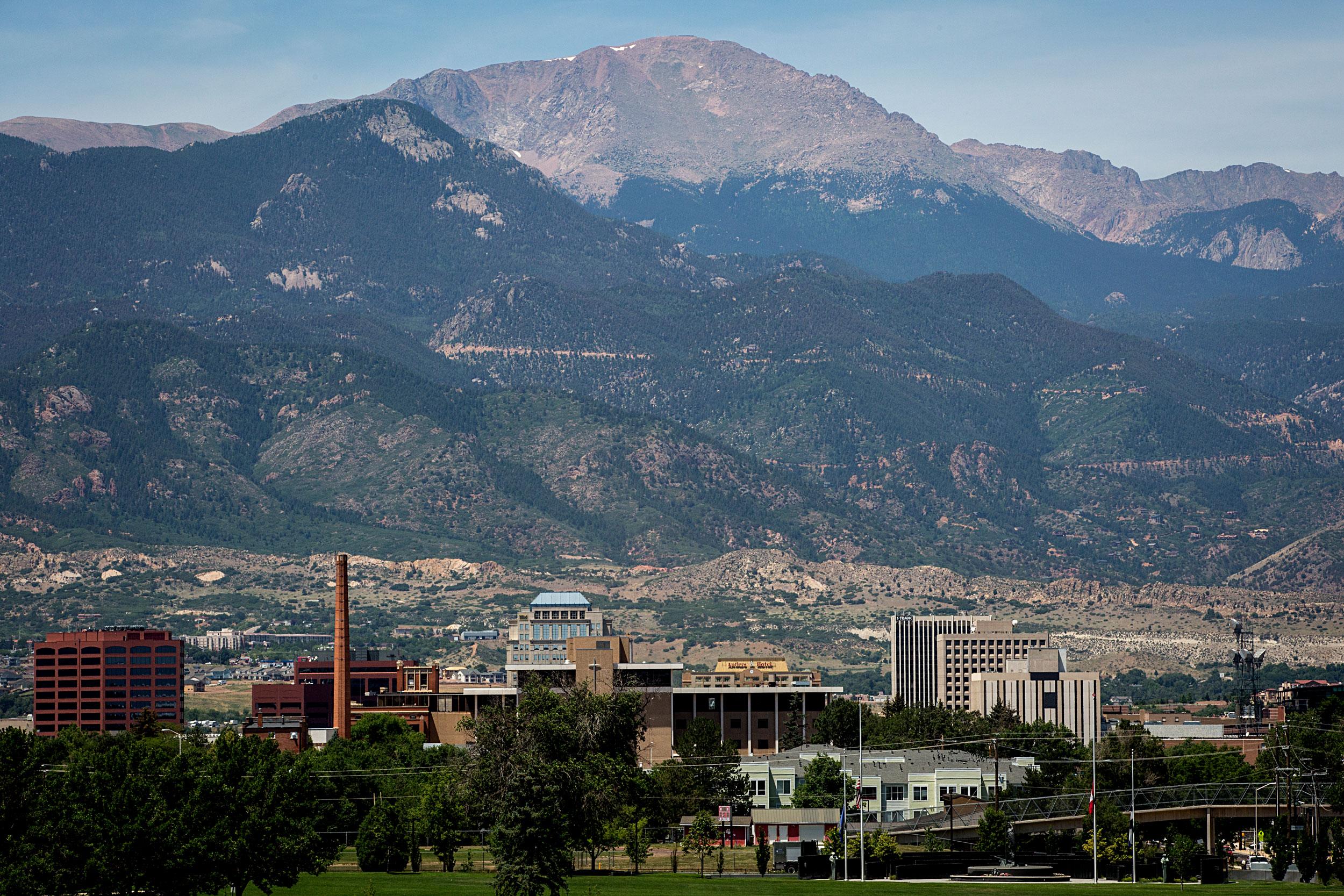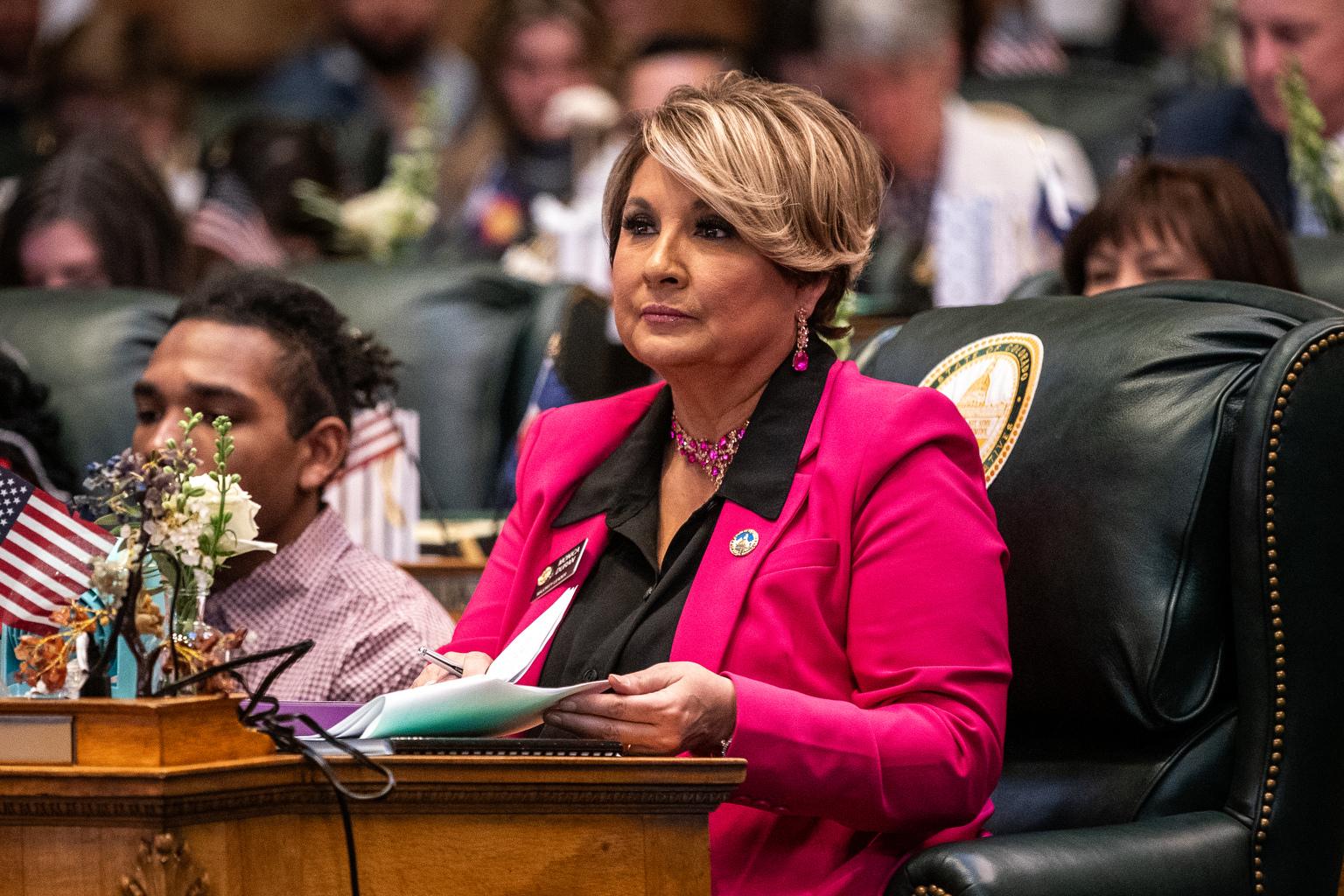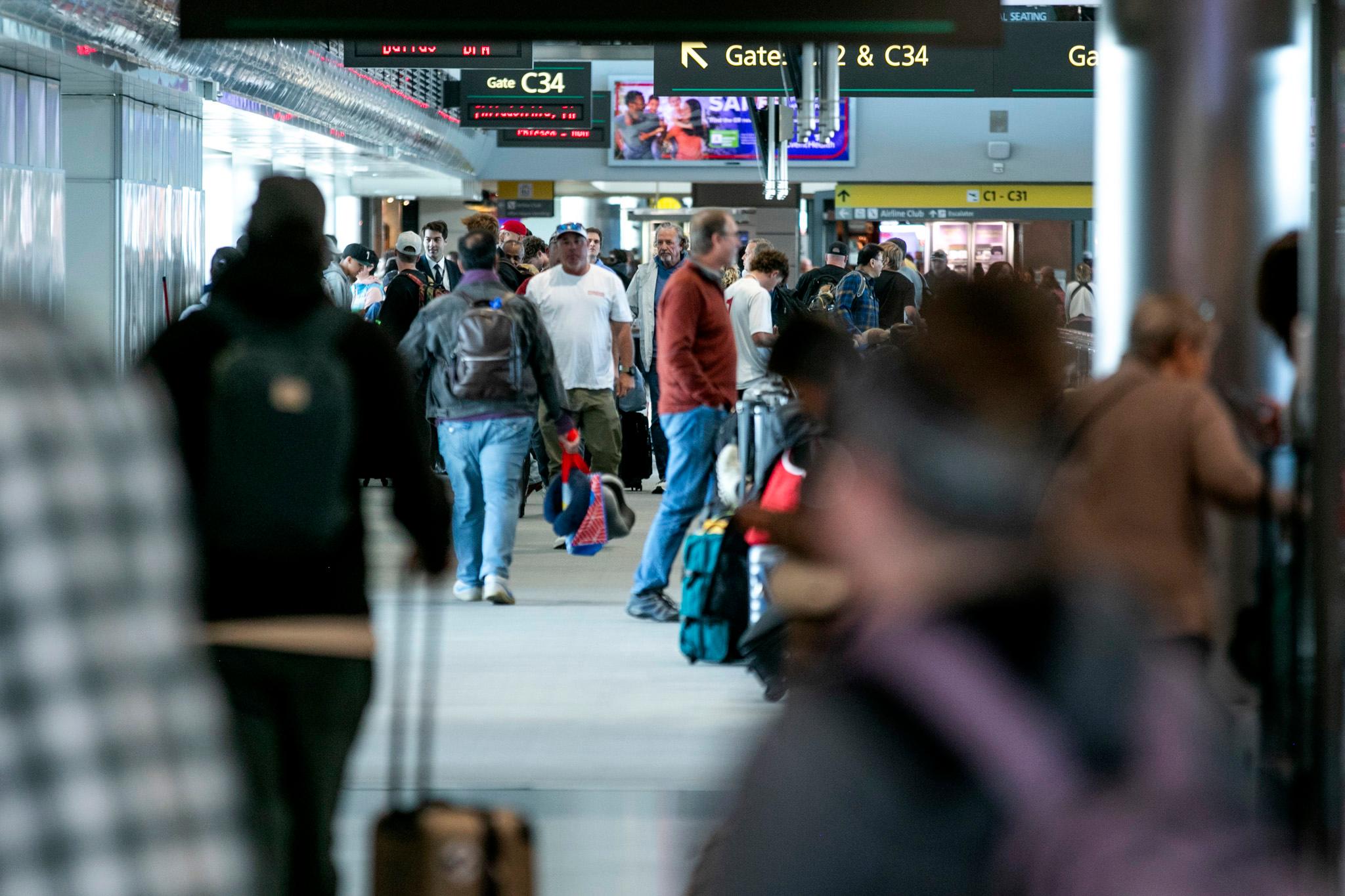Ahead of the April 26 scheduled expiration of the statewide stay-at-home order, Colorado Gov. Jared Polis and state epidemiologist Dr. Rachel Herlihy outlined what life in Colorado might look like as soon as next week.
“As it rolls off April 27, we need to figure out how to run the marathon now that we’ve run the sprint,” Polis said. “I hate to break it to you, but the easy part was the sprint.”
Polis, speaking from the Governor's Mansion in Denver, said that the state isn't able to test enough -- and investigate confirmed positive cases -- to relax social distancing very much yet. Colorado is still having trouble getting supplies, he said.
He said that Coloradans should still stay at home whenever they can, and that older Coloradans and other people with high-risk health situations will need to continue to be extremely cautious.
"Your May will look a lot like your April if you’re in that most vulnerable group," he said.
“We can’t lose sight of the fact that our job isn’t finished, your job isn’t finished, not by a long shot,” Polis said, as he outlined new rules for businesses that would maintain levels of social distancing that are much higher than normal, but that are greatly relaxed from the way the state has operated for nearly a month.
“Retail curbside delivery, any retail that wants to do that, that starts immediately April 27,” Polis said. Other retail would be allowed to open May 1 with some restrictions.
He said that elective surgeries would be allowed starting Monday.
Large workplaces, starting May 4, will be allowed to open at 50 percent capacity, and are advised to have symptom and temperature checks for workers as they arrive.
Polis said his own goal for bars, restaurants and clubs to reopen would be mid-May, but that he’d have to wait for data on the effects of other changes to make those decisions.
Polis said that he accepts that most Coloradans will likely be infected unless a vaccine is developed.
“But they can’t get it all at once,” he said. “That’s what we have to prevent.”
Herlihy said that to move forward without exceeding the state’s hospital capacity, Colorado needs to maintain social distancing, encourage elderly Coloradans to exercise further caution, people need to wear masks in public, and the state will need to pursue aggressive case detection and containment.
Herlihy shared details of the scenarios the state is studying as it considers what comes after the stay-at-home order is lifted. One scenario was maintaining social distancing strategies with no other restrictions. She pointed out that this model estimated that the state’s current number of ICU beds would not be enough.
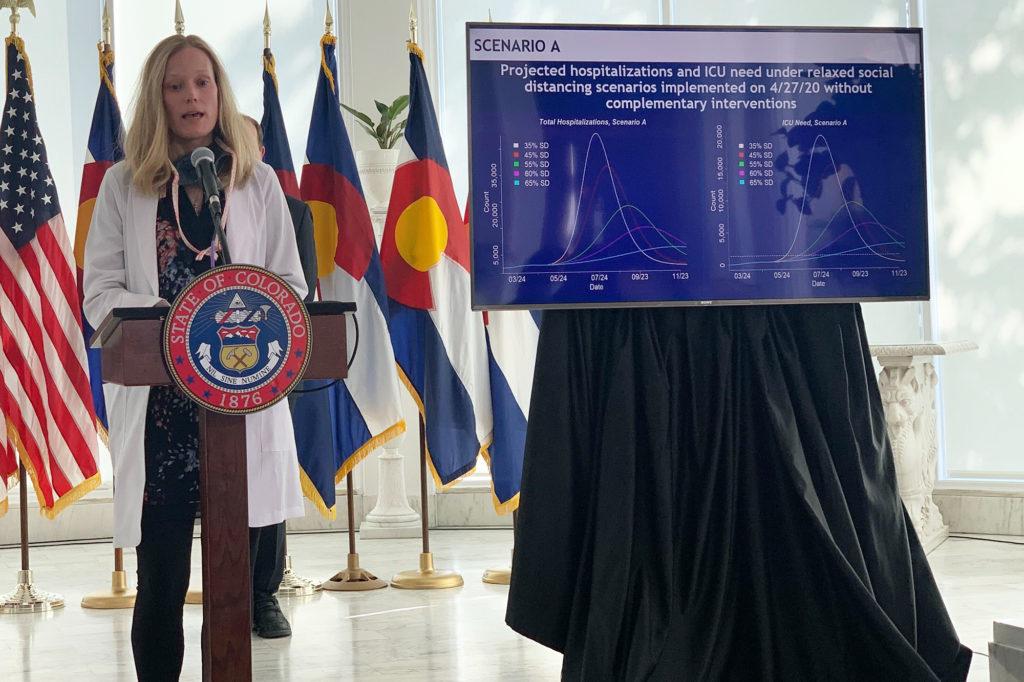
Other strategies the state considered include maintaining social distancing and encouraging elderly Coloradans to stay home or otherwise maintain a greater level of social distancing. Another scenario considered social distancing, aggressive case detection and containment.
"No one of these things is enough," Polis said.
As of Monday, Colorado had 10,106 cases of COVID-19, with 1,880 hospitalized and 449 deaths resulting from the disease.
Nearly a month into that order, communities across the state are showing signs of impatience to get out from under restrictions.
“Eagle County is the first county that has really gotten its act together,” Polis said, adding that the county, which was one of Colorado’s early hot spots, gives a sense of where the state is going.
“It’s going to be hard for our mountain communities,” he said, because of the economic impact of reduced tourism.
Eagle County, he said, put restrictions in place before the state did, and it was a symbolic milestone for the county to emerge from those restrictions before the state does, “at great loss to the community,” he said.
He said that some of the earliest cases tended to be well-known people in their communities -- that people who were likely to get it soonest were people who’d interacted with the largest number of people -- and that Eagle County had been hit hard early on but had done a good job of being aggressive to fight the spread of the virus.
“I am very much looking forward to and expecting to being in Eagle County on Thursday and Friday,” Polis said.
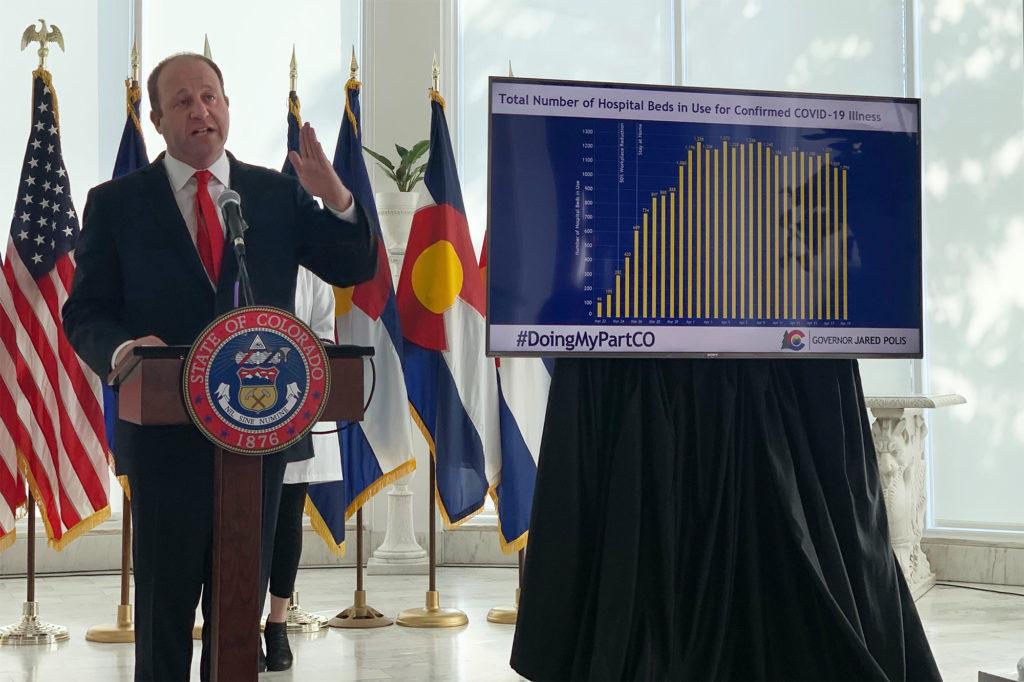
Last week Eagle County, which includes Vail, has requested an exemption from parts of Colorado's statewide stay-at-home order. On Sunday, hundreds of protesters gathered on the Capitol lawn in violation of city and state orders.
Earlier on Monday, Denver Mayor Michael Hancock said that Denver could extend its stay-home order past its current expiration date of April 30, but that the reopening of the city's economy could come in phases before the city reaches its ideal coronavirus testing levels.
Next week, the Mesa County Board of County Commissioners plans to ask to be allowed to reopen on its own timeline, too, according to a letter provided to CPR News by Commissioner Rose Pugliese.
The Mesa County letter comes with a plan that starts with restrictions on gatherings of more than 10 people, and includes six-foot physical distancing, returning to work in phases, encouraging the public to wear masks to enter retail businesses and other guidance. A second phase, which would start at an unspecified time, would increase the cap on gatherings to 50 people, allow non-essential travel, and open more businesses like gyms and bars.
“Mesa County’s first positive case of COVID-19 was reported on March 14th, and to-date, we have 34 positive cases. The greatest spike in numbers occurred in early April when four positive cases were reported,” the letter says. “Between March 14th and today, our epidemiological curve has remained flat. In the course of a month, we’ve had only six hospitalizations, three of which have since been discharged. Our sampling site has reduced its operations to half-day because we’re not able to fill our appointment schedule.”
That plan is currently being reviewed by local businesses before being finalized.
The governor said that the end of the stay-at-home order is a step toward a more sustainable way of living, but that it comes with risks.
"It enters the time of individual choices," he said.

